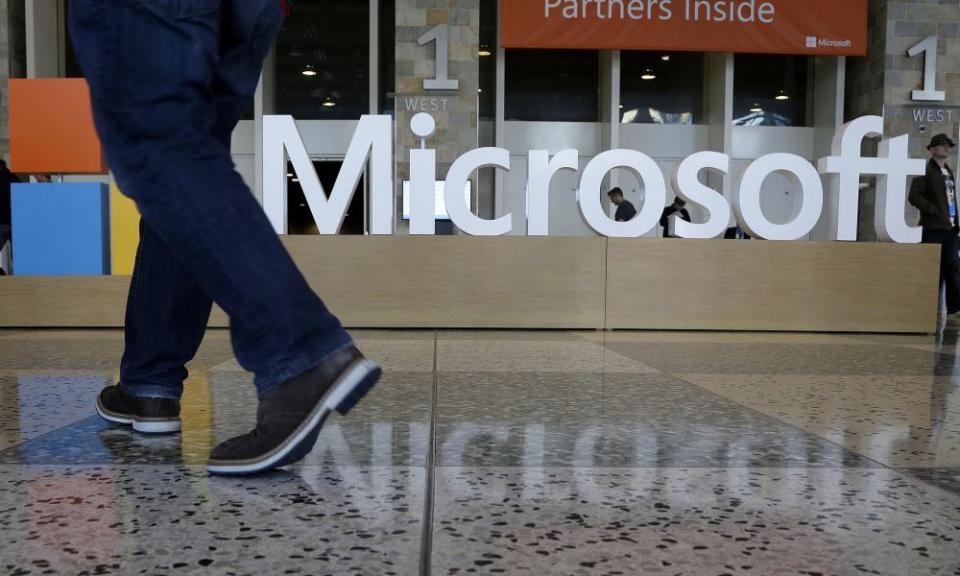Microsoft to require contractors to offer paid parental leave
The company’s new policy, prompted by legislation passed in its home state of Washington, will give workers 12 weeks paid leave

Microsoft has announced a policy requiring its contractors to offer employees a minimum of 12 weeks paid parental leave, paying them up to $1,000 a week.
The policy, which affects US-based companies that do work for the technology company and have more than 50 employees, will be rolled out over the next year. It will affect people including the company’s cafeteria workers, janitors, IT support staff and engineering consultants.
Microsoft was prompted to introduce the policy after Washington state, where the company is headquartered, passed legislation requiring companies to offer employees and contractors paid parental leave. The company said that it wanted to give the same benefit offered by the legislation, which comes into effect in 2020, to contracted staff across the US. The company noted that the policy could increase its costs.
The policy will bring the parental leave benefits of affected contractors in line with those of full-time employees, who also get 12 weeks parental leave, while birth mothers get an additional eight weeks off.
“The case for paid parental leave is clear,” said the company’s general counsel, Dev Stahlkopf, in a blogpost, citing various studies showing that it improves productivity, morale and retention of new mothers. Men also take more paternity leave when that leave is paid, allowing for more bonding with young children, which is linked to higher cognitive test scores for the children.
“Further, when men and women have the opportunity to take paid leave, it can help counteract gender caregiving stereotypes, neutralize stigmas and promote equity in the home and office,” added Stahlkopf.
In spite of the proven benefits, just 13% of private industry workers in the United States have access to paid parental leave, according to the Bureau of Labor Statistics.
The US is the only developed country in the world that doesn’t guarantee paid parental leave to workers. The UK guarantees 39 weeks for mothers, Australia offers 18 weeks, while Mexico gives mothers twelve weeks of leave at full pay.
It is not clear exactly how many Microsoft contractors will benefit from the new policy, which covers “supplier employees who perform substantial work for Microsoft”. Microsoft told the Guardian it had “about 1,000 supplier companies” based in the US and that it can “confidently say this will impact thousands of workers”.
The policy will not cover contracted or subcontracted employees based outside of the US.
“We applaud Microsoft for the leadership they’ve given in the fight for paid leave. At the same time, we have to ensure time to care does not remain a workplace perk dependent on who you work for or where you live,” said a spokeswoman for Family Values @ Work, an advocacy group that pushes for paid leave, in a statement.
Microsoft has been under pressure to improve working conditions for contractors after some workers unionized in 2014 and started pushing for benefits like paid leave. In 2015, Microsoft announced it would require its suppliers to give their workers at least 15 days paid time off.
The small victory was offset when the contracting company Lionbridge laid off all 38 unionised workers, who had been doing bug-testing for Microsoft’s apps. Those workers filed a union-busting complaint against Lionbridge and Microsoft to the National Labor Relations Board in December 2016, but they settled this year after months of negotiations.
Philippe Boucher, the leader of the union in question, the Temporary Workers of America, has since been trying to engage Microsoft shareholders about the paid leave policies.
He congratulated Microsoft’s management for “moving in the right direction” and urged other companies including Google, Facebook and Amazon to follow suit.

